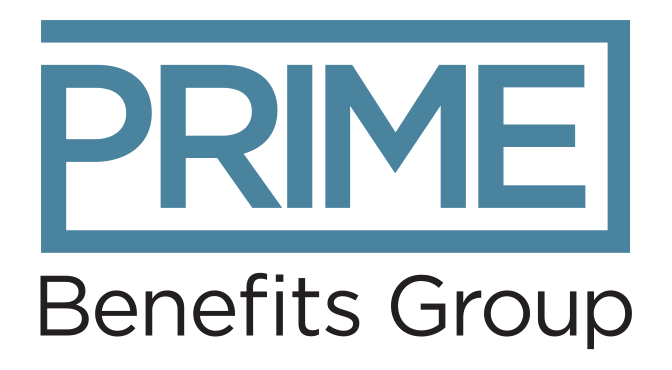- Have a question?
- 613-89-Prime (77463)
- 1-866-950-3667
- info@primebenefitsgroup.com
Improving Employee Financial Wellness


Notepad with Financial Literacy written on it
How financially savvy are North Americans? Just a little over half of Canadians have basic financial literacy, and Americans can’t answer about half of the questions asked to them about simple financial knowledge. This isn’t surprising, given that financial literacy isn’t taught in most schools, and ¾ of parents don’t discuss finances with their children.
Who is Financially Savvy?
It means that many of us aren’t equipped to make financial decisions about things like saving, debt, credit, investing, and more.
As the cost of living keeps rising, this is terrifying if we consider that consumer debt has grown to record levels and savings rates are negligible. What’s more, 60% of us live paycheck-to-paycheck, half of us don’t have access to $1000 in an emergency, and 40% of us couldn’t cover an unexpected expense of $400.
Why should employers care whether their workers are financially literate?
Here are 8 Reasons:
- Less stress: Finances are the biggest source of stress to roughly half of workers, and they spend approximately 5 work hours every week dealing with those issues. This additional stress also has a negative impact on their mental and physical health, costing more in decreased productivity and increased absenteeism.
- Saves money: Studies have estimated that companies that implement a financial literacy program receive a 3-to-1 return on their investment.
- Increases productivity: As workers spend less time on personal finance issues, they have greater focus at work and produce more, or work more efficiently, as a result.
- Aids recruitment: Offering financial wellness programs shows you care about your workers, and it attracts top talent.
- Increases retention: Turnover decreases when workers are offered financial education. In fact, roughly 80% of Millennials and Gen-Xers would change companies to one that prioritized financial wellness.
- Improves financial acumen: Improved understanding of how money works (including the company’s financial situation), less financial stress, better at negotiating and managing finances.
- Less absenteeism: Workers are healthier when they can manage stress.
- Reduces worker vulnerability: Less need for worker to look elsewhere for financial relief, such as by having another source of income (could cause distraction and burnout) or by being tempted to do unethical things (sell confidential information, steal)
Clearly companies and workers all benefit when workers are financially literate. Knowing this, leaders can go beyond just handing over a paycheck to playing a significant role in showing workers how to make the most of their money.
8 Ways Leaders Can Help
Here are 8 ways that leaders can help workers achieve financial wellness:
- Offer financial guidance: Provide access to educational resources, informative workshops, financial advisors, or even your own expert team. Organize lunch-and-learns, ‘know your numbers’ initiatives for retirement readiness, provide one-on-one assistance, and suggest the use of financial management tools. What financial topics would be useful to focus on?
- Making a budget
- Establishing an emergency fund
- Reducing debt
- Saving for retirement
- Big expenses (eg: house, college, wedding)
- Taxes
- Investments
- How to teach kids about money
- Estate planning
- Consider each worker’s individual financial situation: Each worker has different needs. If an organization truly wants to help, it will pay attention to what each worker needs and then help them meet their major expenses. This could be done by offering their needed benefit (for eg, childcare, scholarship, flex scheduling, or career training) to help them achieve work-life balance.
- Incentivize participation in financial literacy training: Make it part of onboarding for new hires and make it a priority for workers with a designated time/place for it. Can offer gift cards, cash, or merit-based rewards for participating in the training.
- Practice open-book management: Show workers the numbers and how they impact the organization’s financials. Use this discussion to teach about budgets, income, and expenses.
- Make it easier for workers to access funds: Offer low-fee options for workers to access funds between paycheques.
- Specify the path for career advancement: Create clear avenues for advancement (ie, higher wages) with transparent goals of how to get there.
- Provide opportunities for career training: Beyond painting the path for advancement, the training for workers to meet their goals should also be there.
- Host fun math competitions: As silly as this sounds, research has found that improving adult numeracy also helps them make better financial decisions.
We’re Here to Help
We recognize the importance of showing employees how to make the most out of their money, and we’re here to help. Please contact us at info@primebenefitsgroup.com so we can work together and create solutions that work best for you and your organization.
Suggested Readings:
- https://abclifeliteracy.ca/financial-literacy/
- https://peoplemanagingpeople.com/articles/employee-financial-literacy-program/
Additional Resources:
- https://www.cpacanada.ca/en/public-interest/financial-literacy/financial-literacy-education/request-financial-literacy-series/workplace
- https://www.ted.com/talks/natalie_torres_haddad_the_foreign_language_of_financial_literacy
- https://www.canada.ca/en/financial-consumer-agency/programs/financial-literacy.html
- https://www.practicalmoneyskills.ca/